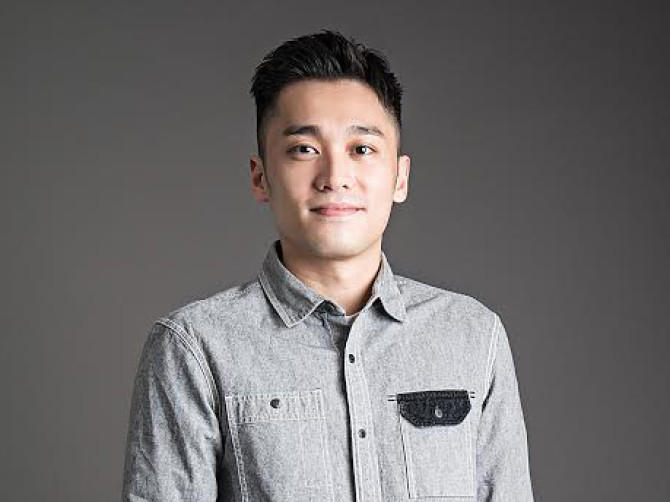We recently interviewed Nicholas Wong, author of Crevasse, for our December issue of our newsletter. Check out his insights into the translation process, identifying as a “global poet,” what #LitinColor means in Hong Kong.
What context—if any—would you give to readers before they delve into Crevasse? Especially for those who may not typically read poetry, how would you want them to approach your work?
Poetry is a special genre that invites readers to perceive the worlds through a particular use of language. I’m saying “worlds” because I’m well aware of the gap between my Asian-ness and America. Yet, I do think all worlds point to certain common human experiences. I want to immerse readers with tension and bring them to get to know what disturbs and troubles me. Someone has been kind enough to write a 5-star review on Amazon.com, in which he describes Crevasse as a “fun but uncomfortable read.” That’s a pretty apt description, because there is always pleasure in dis-ease. Think about the English language as my L2 yet creative medium. Think about a queer Asian man writing from a place dominated by a heterosexual discourse. Think about the book as a challenge to the western canon.
You utilize translations (and “mistranslations”) in some poems in Crevasse—namely “Unspeakable” and “Trio with Hsia Yü.” Asymptote recently published two translations by you as well. How do you undertake translation as a creative process, particularly considering the writer’s original intent versus your interpretation?
Thanks for following my recent publications. But first, I need to declare that my recent translation of Eric Lui’s poem from the Chinese in Asymptote (which I think is the coolest translation journal to date – check it out!) has received enormous help from Chenxin Jiang. Like many other poets, I consider translation as a vacation between my own creative writings. I believe all poets have to undergo this process in order to break through. After translating Lui’s poems, I found that I tended to shift naturally towards a more imagery-oriented approach when I wrote. This is something I’ve never deliberately done. But I always admire poets (Arthur Sze, Ocean Vuong, etc.) who do so. Of course, when one translates a poem into a different language, one can’t deviate (too much) from the original. However, there’s also so much to reinvent about the sounds and the rhythm.
Your writing reflects the experiences of the communities to which you belong and the intersectional nature of your identity. What does it mean to you for your poetry to be categorized as “queer” or “Asian” given the complexity of these communities (and yourself) in your writing?
For now, I guess I’m still comfortable with these names, but I’m also aware of the danger of these labels. They’re just for the sake of easy categorization for scholars, editors, critics, and students. After all, I want to be considered as a ‘global poet,’ or ‘a world’s poet.’ It will take some time to figure out what they truly mean to me. I don’t have a problem being labeled as an Asian poet, because I really am. But I do have a problem with you if you veer away some poems particularly speaking about the Umbrella Revolution, just because you think the Occupy movement in the US is the movement.
For Kaya Press, we have our #LitInColor campaign to support and bring attention to writers of color. What does #LitinColor mean to you in the context of Hong Kong’s literary atmosphere?
For a very long time, English poetry in Hong Kong is lit decolored. In the past two years or so, things have started to change. Creative writing is offered to students in local universities. But nothing solid is here to keep nurturing the promising emergent local voices. What do they do after the course ends? Young people from Hong Kong are more open to subversion. They want to change. They write about their personal experience of growing up in post-colonial Hong Kong, while there’re still white poets based in Hong Kong writing about noodles, dumplings and shoe-shiners by the street. My eyes keep rolling.
In the meantime, there’s so much old-fashioned-ness and bureaucracy in local institutions. The MFA isn’t regarded as a terminal degree. The MFA program where I came from has been murdered, when it’s about to make money (because City University of Hong Kong isn’t smart enough to realize that a different financial model has to be implemented to fund a low-residency program). It’s only lived a short five years, but my classmates have achieved so much! It’s the only international low-res program with an Asian focus. Even Junot Diaz has publicly spoken that he’d have left his position at MIT and taught here.
In our last issue of the newsletter, we asked Sam Chanse to write us a biracial horror story in honor of Halloween. Since the holiday season is well underway, would you contribute a festive haiku?
Snow stresses Christmas
Or is it the reverse that makes
A clamor a quarrel


Leave a Comment
We'd love to know what you think.